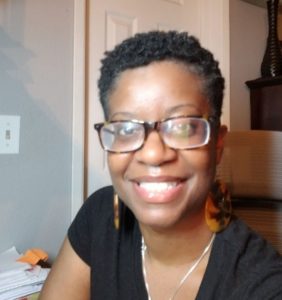Black Professionals and Hiring Practices
By Rebecca Grim, Peer Career Consultant

As Black scholars graduate from college and prepare for the job market, many report experiencing discrimination during their job search and during the hiring process. Some researchers report that discriminatory hiring practices begin as early as the application process, continue into the interview process, and are present on the job. To reach their professional goals Black Americans, believe that they must work harder and be more aware of how they present, physically and professionally. Black professionals report being more careful about how they complete applications, how and what information they disclose, apply to twice as many companies, and grind twice as hard in general than their White counterparts. Regardless of their qualifications, they receive fewer call backs for interviews, are hired for positions that do not match their qualifications and are offered lower salaries than their White counterparts hired for similar positions.
Here are two recent examples of discrimination faced by Black professionals:
- According to a 2021 CBS report during the application process a Black applicant, Shinique Wright, believed that she was eliminated from the applicant pool because of her “ethnic sounding” name. When she first applied for the position, she was contacted for an interview twice, versus when she used a name that was more “Whitened” sounding she received 11 interview offers, although she used the same resume.
- In the U.S, physical appearance affects how people are treated and “attractiveness” is widely based on White standards of beauty, which are predominately fair skin and straight hair. Black Americans are typically darker and have curlier more tightly coiled hair, which is not a considered a White standard of beauty and is viewed as unprofessional. Because discrimination based on hair texture was so prevalent Black Americans pushed for policies to protect against discrimination. In response to this push, the state of California enacted the Crown Act (Creating a Respectful and Open World for Natural Hair Act) of 2020 which was passed by Congress as a protection from job discrimination because of hair style or texture.
What are Employers Doing?
As these issues are identified, employers and professionals are developing interventions to address the following points:
- Consult minority professionals to help them develop hiring practices.
- Developing Diversity Equity and inclusion (DEI) departments and hiring DEI professionals to address these discriminatory practices.
What should Black professionals do?
- Know that you bring value, knowledge, expertise and experience to the professional job market.
- Vet the company. Make a habit of investigating a company’s hiring practices, diversity statement and online reviews. Determine if this is a company that YOU want to work for.
- Prepare for the job search process. Update your LinkedIn profile, prepare your resume/CV, cover letters, thank you letters and prepare for interviews.
- Build allies. Get a mentor, seek advice, and referrals from other minority professionals in your industry.
- Know your rights regarding discriminatory hiring practices and discrimination in the workplace.
If you would like to learn more about this topic, check out these links for additional resources and articles:
https://www.blackenterprise.com/acing-the-interview/
https://joinhandshake.com/blog/students/black-professionals-career-advice/
https://www.shrm.org/hr-today/news/all-things-work/pages/racism-corporate-america.aspx
Share